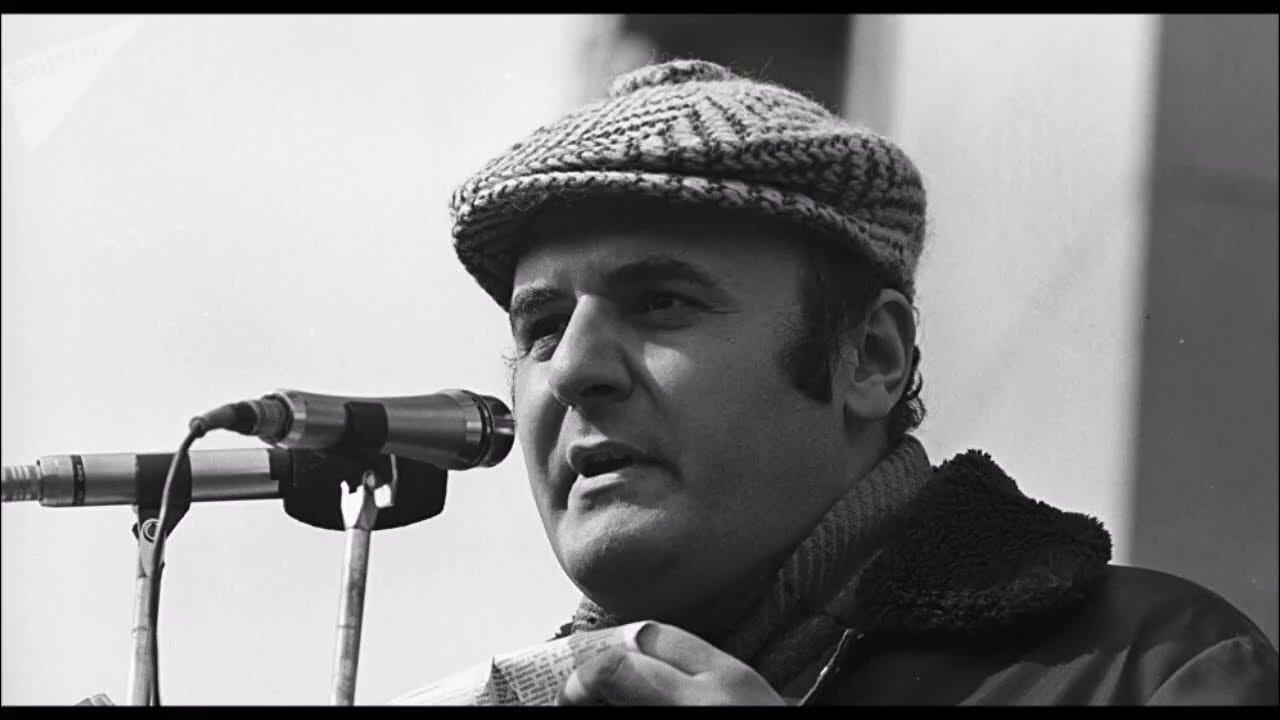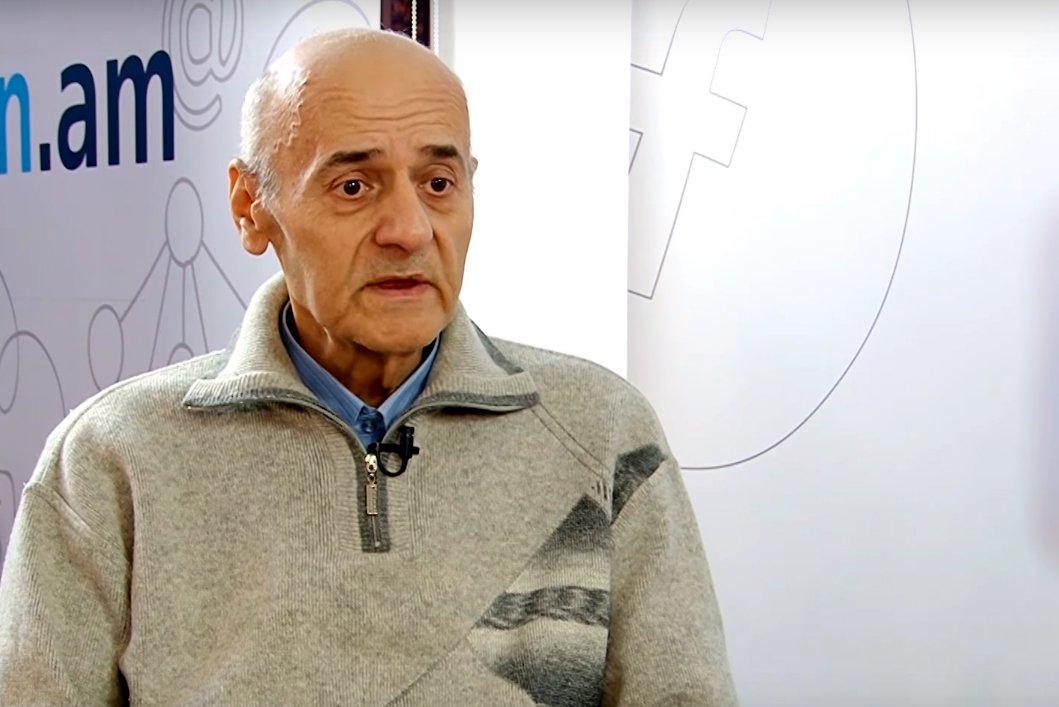Revenge seeker at the separatist's grave Galstanyan calls upon Muradyan's spirit
The leader of the revenge-seeking movement, Archbishop Bagrat Galstanyan, who has repeatedly given Armenia's Prime Minister time to resign, is now seeking a new foothold in recent days. The political ground, initially unstable, is clearly and definitively slipping away from under him. He has even named himself as a candidate for prime minister, but Armenia's leadership dismisses Galstanyan's ambitions and those of his puppeteers with disdain.
They are now in turmoil, searching for ways to mobilize the people for something remotely resembling mass protest actions. Their "historical significance and fate-determining" provocateur emphasizes this every time he acts as the herald of his own foolishness. But the people are not falling for his calls. Galstanyan's real goals and those behind this political project are too obvious.
In short, it's not just an attempt at a power grab but also efforts to drag Armenia back into that swamp where it spent over three decades immersed in myths and dreams of committing crimes against Azerbaijan indefinitely and with impunity. From this perspective, Bagrat Galstanyan's visit to the grave of the infamous Igor Muradyan was logical.
Yes, formally there was a reason for this visit. Six years ago, Muradyan passed away. But the political corpse of Muradyan was clearly unearthed not without reason, but as an attempt to mobilize all those who oppose the dialogue between Baku and Yerevan. "In our thoughts, we are transported back to the distant year of 1988, when it seemed that nothing was happening in the region, the country, or life.
However, the situation changed with the beginning of the Karabakh liberation movement, one of the founders of which was Igor Muradyan," proclaimed Galstanyan. It is now beyond doubt that Archbishop Bagrat possesses the ability to drift away from realities, preferring well-known myths. But there is something to be reminded of here.
A native of Odessa, Ukraine, who lived in Baku for many years, Igor Muradyan was one of those who convinced Armenian society of the validity of claiming Azerbaijani lands. Specifically, he led the so-called "Karabakh Committee," whose main goal was the annexation of the then Nagorno-Karabakh Autonomous Oblast to Armenia. Its members systematically persuaded the leadership of the USSR to make the decision they desired.

Speaking of 1988, Galstanyan forgot to mention that it marked Armenia's solemn entry into the quagmire of problems it still cannot overcome. It was a road to nowhere. Armenia lost; it was forced to recognize Azerbaijan's territorial integrity, including the Karabakh region and enclaves. Yet, even after all this, Armenia has not relinquished its status as a regional outsider. Armenia's current Prime Minister Nikol Pashinyan, sadly surveying existing realities, attempts to change the situation. However, Baku has clearly pointed out what hinders the signing of a peace treaty with Yerevan.
President Ilham Aliyev previously emphasized the importance of amending Armenia's constitution. The head of state clearly justified his demand. "Our position is based on international legal norms. We have never had any territorial claims against any country, including Armenia. They had territorial claims against us. It is the declaration of independence, which was subsequently included in their constitution, that contains territorial claims against Azerbaijan. It is in their ideology, politics and public discourse that territorial claims against Türkiye are incessantly made. From young age, Azerbaijanis and Turks have been portrayed as enemies in their society. It is their society that has been poisoned by nationalists and war criminals. Therefore, they should deal with these issues. Of course, it is simply impossible to conclude a peace agreement between Armenia and Azerbaijan while the current constitution of Armenia remains unchanged," the President of Azerbaijan emphasized.
And here we are once again convinced of the rightness of President Aliyev. After all, Archbishop Bagrat Galstanyan, by visiting the grave of the man who was one of the ideologists of Armenia's policy of territorial claims to Azerbaijan, showed us that there are still forces in Armenia that dream of "miatsum" (unity).
Accordingly, the current leadership of Armenia should make changes to the constitution of its country, which are being talked about in Baku, so that such provocateurs have no room for maneuver now and in the future. In this way, the official leadership of Armenia will demonstrate the sincerity of its desire for long-term peace.
Accordingly, the absence of steps to amend the Armenian constitution will prove that Nikol Pashinyan is once again trying to sit on several chairs at once. It does not work that way. The logical outcome of such attempts is a failure between two chairs. Which Bagrat Galstanyan and his puppeteers will certainly try to take advantage of. Which, in turn, will create the ground not for peace, but for new wars. Which will end with another defeat for Armenia.

It should be recalled in this regard that the same Igor Muradyan had a rapid epiphany shortly before his death. Before the four days of fighting that took place in April 2016, he was desperately refuting the claims of Azerbaijani experts that Armenia was de facto deprived of independence. At the same time, he fantasized about the superiority of the Armenian army over the Azerbaijani army.
Then came April, there were four days that made a real revolution in the minds of many propagandists of Armenian mythology, including Muradyan. He began to lament Armenia's difficult fate. But Bagrat Galstanyan, visiting Muradyan's grave, did not mention this. He is focused on seizing power. And the fate of Armenia, by and large, does not interest Galstanyan himself and his puppeteers at all.








